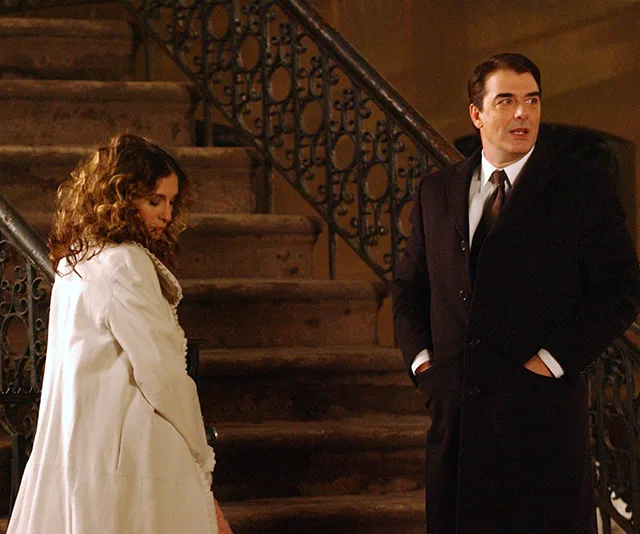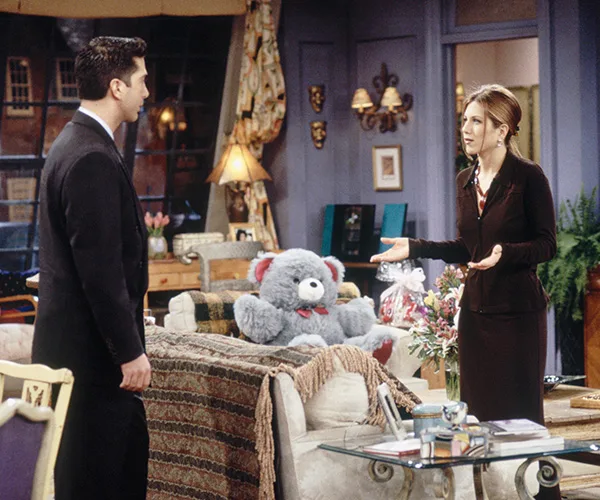When you were a child, your mum probably taught you it’s important to be nice to all people. But as we grow up, we learn that not all people are nice to be around.
We can sometimes find ourselves in relationships – romantic or platonic – that have unhealthy effects on our wellbeing. Toxic relationships can include anything from friends who compete with you to partners who are overly dependent on you to fulfil them.
“A toxic relationship is one that is bad for you and has a negative impact on your life,” says clinical psychologist Gemma Cribb. “This negative impact could be decreasing your life satisfaction or disrupting your physical or mental health.”
Those effects, she says, will depend on the situation, but there are common themes.
“Generally a toxic relationship will cause anxiety and or low mood,” she explains. “It will be taking up an undue amount of your thinking. You may want to avoid your friend or partner or feel like you are ‘walking on eggshells’. Your sleep can become disturbed, you can lose concentration, and feel overly agitated or lethargic.”

“A toxic relationship is one that is bad for you and has a negative impact on your life.”
(Image: Getty Images)Why it happens
Once someone realises they’re in a toxic friendship or relationship, they can easily leave, right? Turns out, for some, it’s not that simple.
According to US research, one reason people stay in an unhealthy relationship is because they tend to see the best in others and overlook information that doesn’t fit that narrative. And there are factors that influence whether we’re likely to end up in a toxic relationship in the first place.
“People with poor boundaries and poor self-esteem are more prone to [falling into] toxic relationships,” Gemma says. “Setting healthy limits on a toxic person is important self-care. People who put others’ needs over their own struggle to set the boundaries needed to protect themselves.”

For some, it’s not so easy to leave a toxic friendship or relationship.
(Image: Getty Images)But setting boundaries can make people uncomfortable. Gemma says that’s because some of us conflate caring for people with making them happy.
“Although this idea isn’t bad in theory, when it comes to an unhealthy relationship you can often begin to do things just to keep them happy, despite these things having a negative impact on yourself,” she explains. “Just like not giving a child having a tantrum the lolly they want, there are loving limits we need to set in relationships despite the fact it will displease the other person.”
Her advice: “Try to notice when you are doing something to avoid conflict, keep the peace or get approval, and begin to say no, agree to disagree, or disengage from the ‘tantrum’ – it will feel hard at first but like most things it gets easier with practise.”

“There are loving limits we need to set in relationships despite the fact it will displease the other person.”
(Image: Getty Images)Are you in a toxic friendship? Here are some of the signs…
They keep trying to change you. You begin to feel that you are not good enough the way you are.
You feel they are competing with you rather than supporting your successes.
It’s all about them, always – they don’t listen to you, and twist the conversation back to them when you try to express yourself.
They’re overly dependent – you begin to feel burdened and become more concerned with their needs and feelings than your own.
They’re meddling in your life and not respecting your boundaries. They give unasked for opinions, and take liberties on your behalf.
They ghost you or are inconsistently available to you. They don’t explain what’s happening or why so you are left anxious and uncertain.
They exclude or isolate you from social events or other parts of their life. They are a closed book and refuse to let you in to some aspects of themselves.
They break promises and are unreliable. You begin to feel wary and untrusting that they will do what they say.
They are hyper-critical and judgemental. You find yourself constantly apologising or on the defence.
WATCH: Martha and Cyrell fight on Married At First Sight. Post continues after video…
Are they an energy vampire?
In recent years, the term ‘energy vampire’ has been used to describe a person who sucks up someone’s energy.
Dr Northrup says this type of person is someone who leaves you feeling completely drained of energy. If there’s an energy vampire in your life, she says, it’s tempting to downplay what’s going on – but eventually it will become impossible to ignore the impact on your wellbeing.
“You think, ‘I should be able to go to lunch with my mother’, or, ‘I should be able to see my ex-husband. I’ll just rise to the occasion!’ But as you begin to see the pattern, you realise you are not capable of being around that energy without somehow suffering,” Dr Northrup says, adding that having boundaries and walking away from unhealthy relationships is essential self-care.
.jpg?resize=1024%2C854)
An energy vampire is a term for someone who sucks up someone’s energy.
(Image: Getty Images)If you’re worried that you’re an energy vampire, worry no more, Dr Northrup says. If you have sufficient capacity for empathy that you’re worried about other people’s feelings, you’re probably not an energy vampire.
“Invariably, when someone begins to learn about this, they think, ‘What if I am the energy vampire?’ And what I say is, ‘I’ve never once heard an energy vampire worry that they were an energy vampire.'”
But Gemma emphasises that energy vampires are not necessarily bad people – and she warns that if you demonise the other person too much you’re not owning your role in the dynamic.
“Sometimes normal people who are going through a tough time and need a lot of support can drain your energy as much as dysfunctional people,” Gemma states. “This is why it might be more helpful to look at taking responsibility for your own boundaries rather than blaming another person and calling them an energy vampire for draining you.”

Take responsibility for your own boundaries.
(Image: Getty Images)Help at hand
Women’s wellness expert Dr Christiane Northrup says that when a toxic friend is putting a demand on you, buying yourself some time before saying ‘no’ can be a helpful technique.
“You don’t start by saying ‘no’, because for most people that’s too hard,” she says. “Instead, stop and say, ‘Let me think about that, and I’ll get back to you.’ And then you say, ‘Thank you so much for asking. I am deeply honoured that you would consider me for that particular task but I simply can’t.’ Don’t make excuses – they’ll make you think that you need to give an excuse, because they’re so good at getting their needs met, but you keep repeating ‘I simply can’t.'”
Ultimately, if you feel that your relationship is having a detrimental effect on your wellbeing, it’s okay to walk away.
“A relationship is not a relationship without mutuality,” states Gemma. “If you are in doubt about whether they can care about your needs and feelings, put them on the table and see how they respond.
If they are indeed toxic for you they will respond in uncaring ways that will make it much clearer – and in some ways easier – to end your association with them.”
If you think you could be in a toxic relationship, check out the resources on the Beyond Blue website.



.jpg?resize=380%2C285)